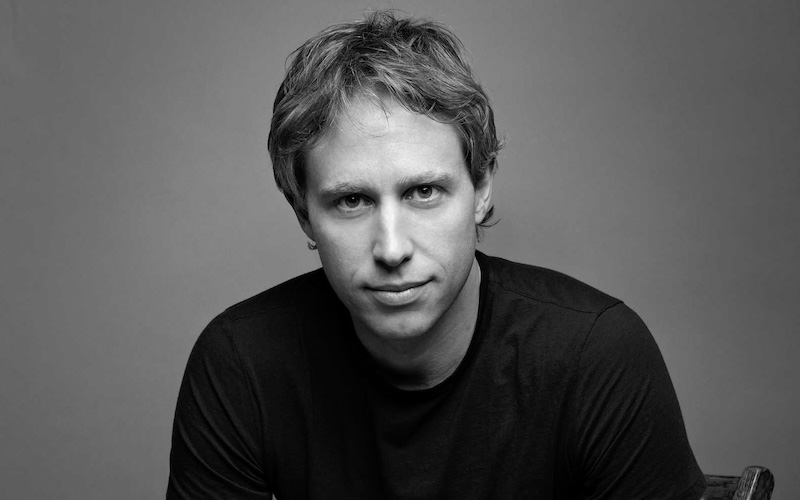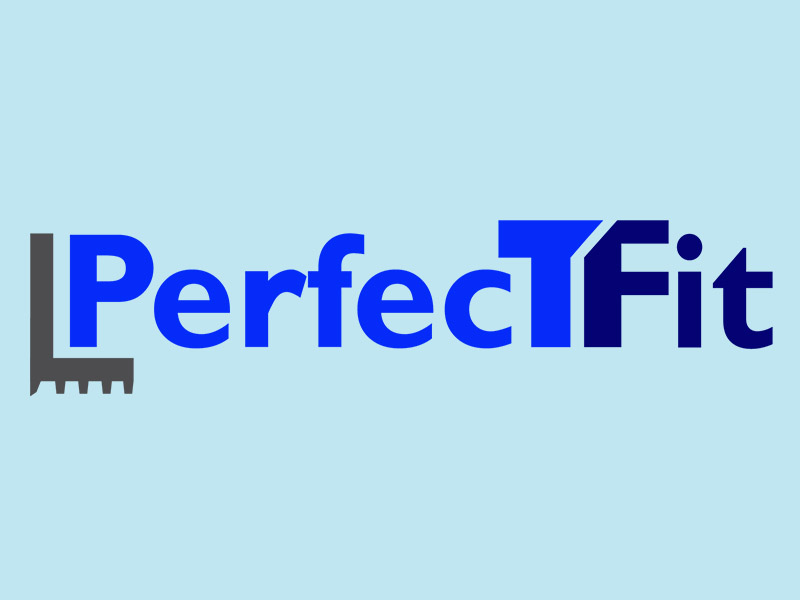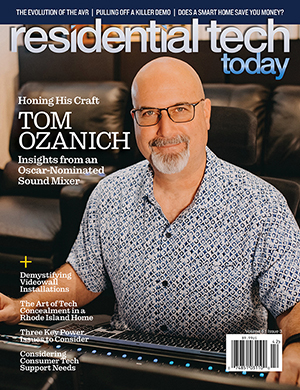Luke Williams is a busy man. Even a quick summary of his work and accomplishments seems like an everyday person’s lifetime resume. Williams is currently a Fellow at the global design firm Frog Design Inc., the professor of marketing at the NYU School of Business, the executive director and founder of W.R. Berkeley Labs, an international bestselling author with his book Disrupt: Think the Unthinkable to Spark Transformation in Your Business, and an experienced speaker across 21 different countries. Oh, and he has also invented over 30 patents in the U.S. With this impressive track record, it’s no wonder that Williams was chosen as the keynote speaker for last year’s CEDIA Expo smart home technology showcase in Denver. Williams shares his thoughts on the evolution of home tech in this exclusive interview.
RT Today: What’s your opinion on the growing world of the smart home and the Internet of Things?
Luke Williams: Mark Weiser wrote an incredibly influential article called, “The Computer for the 21st Century.” He used the term “calm technology.” I think it was the early 90s. People at this time were freaking out about information anxiety, thinking, “How on Earth are we going to keep up with this constant bombardment of information?”
The amount of information isn’t going to decrease. It’s going to keep increasing. But, this technology is going to help us keep in the flow of this information without having us feel overwhelmed. And, the way that they were promising this is that our technologies are demanding our conscious attention. So, the phone rings, I look at it, I pick it up. Or I get a text message, and I hear the text notification, I look at my phone. So, it demands my conscious attention.
And now this is the era of the Internet of Things where everything, basically, is an interface object with a sensor. The promise of that era is that we can stay in the flow of information not through our conscious attention, but through our peripheral attention–our peripheral sense. So, the same way that I’m taking a nice relaxing walk in the park outside and I can see the gentle swing of the trees, letting me know approximately how windy it is, and it’s obviously not rainy because I’m not getting wet… I can see the sun out… I’m taking all that information in, but I’m still able to, for example, concentrate on the conversation I’m having with my friend who is walking with me. So that is the promise of really calm technology, ubiquitous computing, and now the Internet of Things. We’re trying to make technology disappear but have a much more natural relationship with the information in our lives, just the same way that we currently navigate the world around us without these high-tech devices.
RT Today: You’re the inventor of more than 30 different U.S. patents. How does that inspiration come to you when you’re in the inventing mode?
Luke Williams: Well, when you’re working at a design and innovation company like Frog, that is just the nature of your work. You’re constantly thinking about new approaches, new ways of seizing opportunities, etc. So, the patents are really just an outcome of that process. I think I’ve probably held over or been listed as an inventor in more than 100 patents. I normally say ’30-plus’ just because the status of the patents is constantly changing, and I don’t bother to keep up with it. But, you’re constantly signing this stuff when it comes across your desk at a company like that. So, it’s really just part of the day-to-day job. I don’t think there’s any specific sort of technique for thinking about a patent.
I think, at the end of the day, I use a recipe metaphor for innovation because I think it’s a powerful one. Really, if you think about ideas as recipes, growth occurs whenever people take ingredients, meaning the resources that are available at the time, and rearrange them into recipes. And it’s these recipes that make the resources more valuable.








